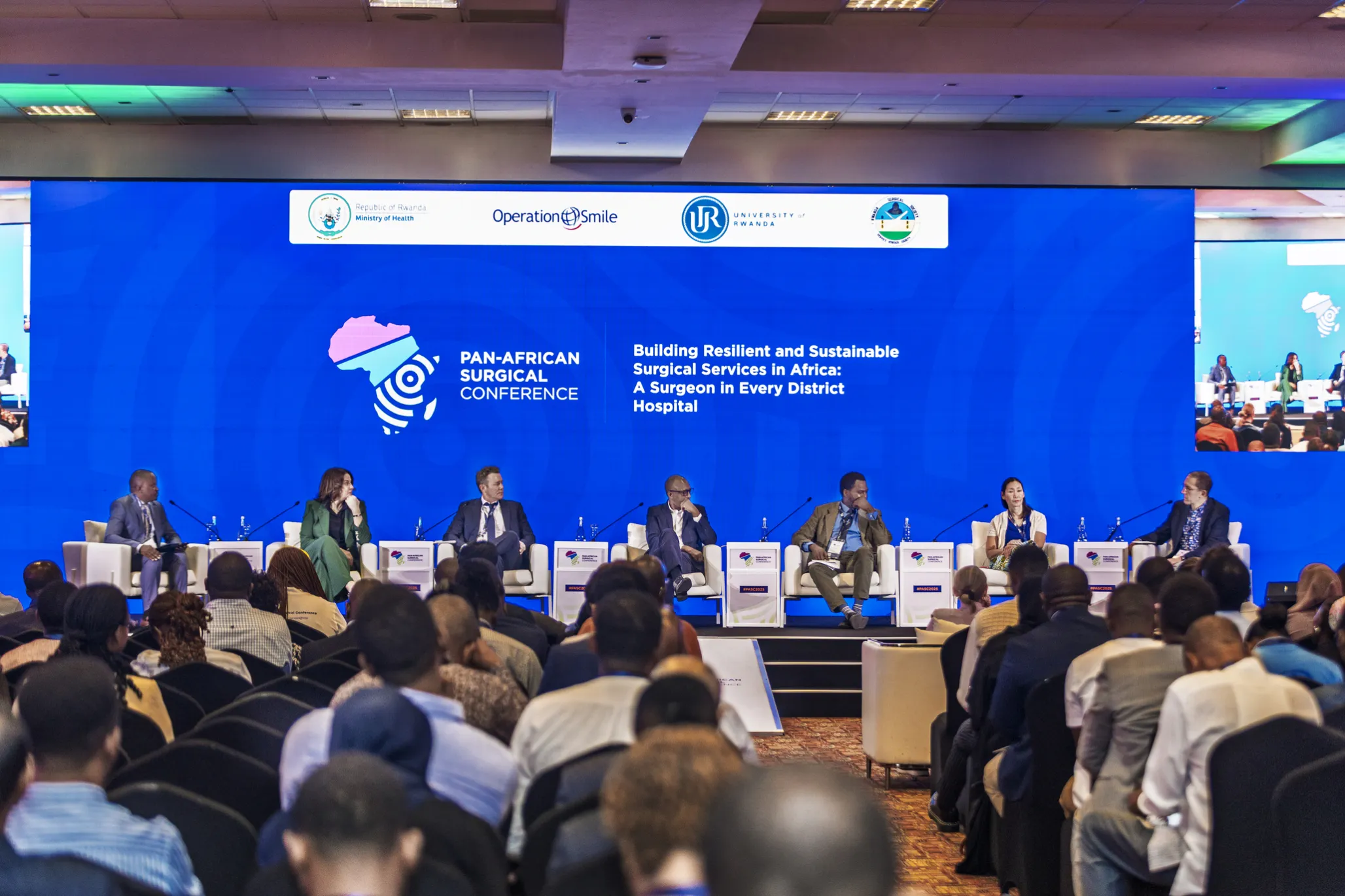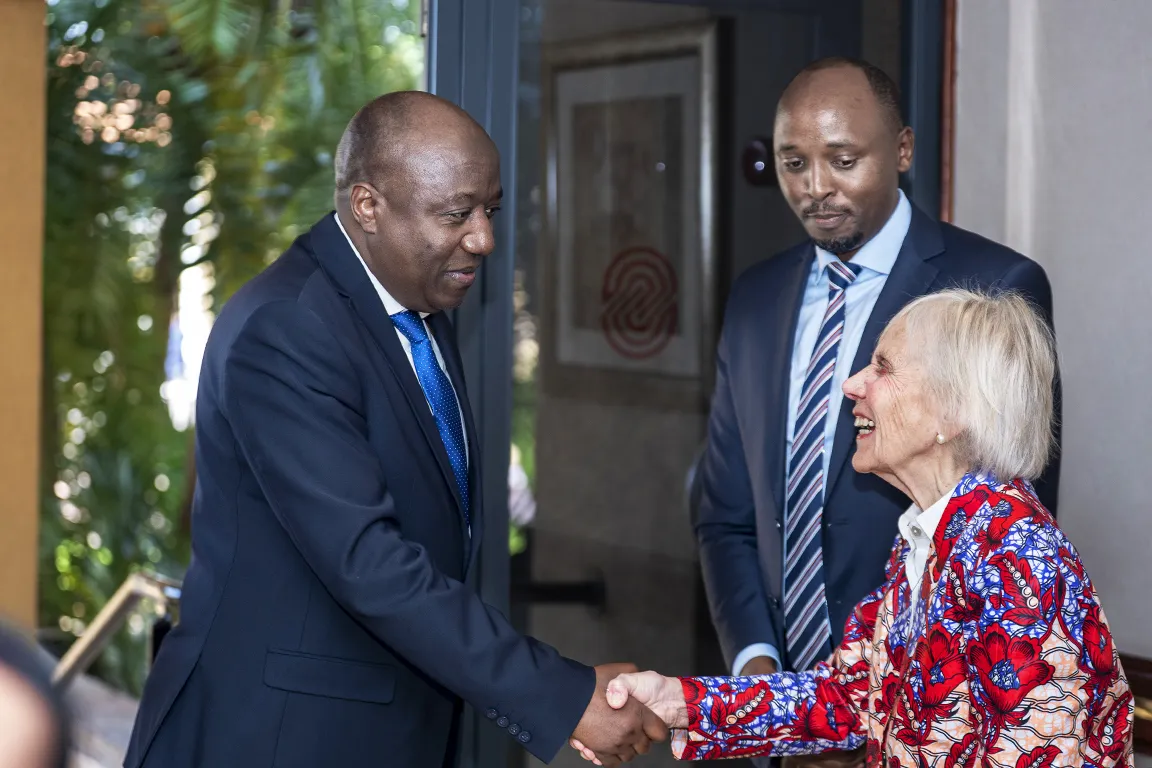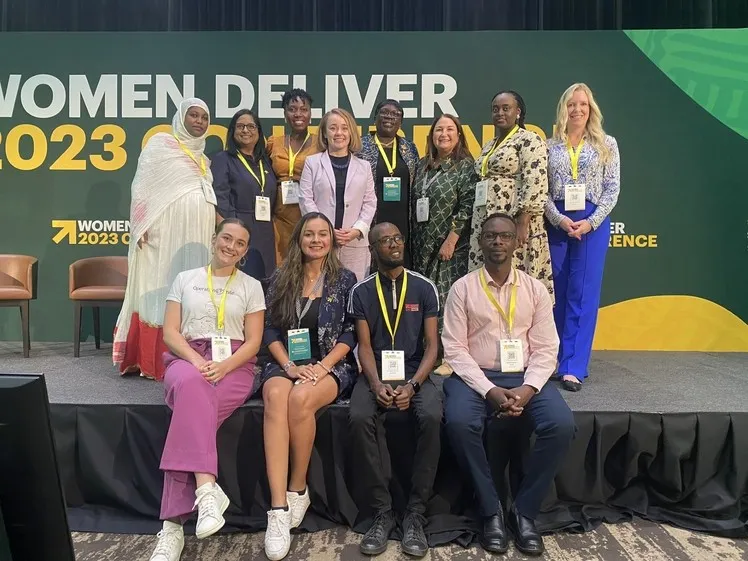Thought Leadership
Shaping the Future of Africa’s Health Care: Key Lessons from the First Pan-African Surgical Conference
Educators, policymakers and health care leaders gather to discuss the urgent need to increase the number of surgeons and improve access to surgical care across Africa.

By 2030, Africa is expected to face a shortage of 6 million surgical care providers, leaving millions without access to life-saving surgical care. For five days in Kigali, Rwanda, over 500 attendees from 36 countries gathered to address this issue, collaborating and discussing how to expand access to safe, high-quality surgical care across the continent and beyond.
The first-ever Pan-African Surgical Conference: Building Resilient and Sustainable Surgical Services in Africa: A Surgeon in Every District Hospital — organized by Operation Smile in partnership with the Rwanda Ministry of Health, Rwanda Surgical Society and the University of Rwanda — brought together academics, policymakers, global surgery experts and frontline providers to develop concrete, scalable solutions to drive meaningful change.
“This conference is an opportunity to listen to our colleagues and develop solutions together,” said Kathy Magee, co-founder, president and CEO of Operation Smile, during an address on the conference’s opening day. In addition to Magee, guests also heard from conference co-chair Prof. Faustin Ntirenganya, Rwandan Minister of Health Sabin Nsanzimana, M.D., Ph.D., Rwandan Prime Minister Édouard Ngirente, Ph.D., and many more.
Led by and for the Pan-African health care community, the conference was also a milestone for Operation Smile and poignant example of its mission to increase access to surgical care by investing in specialized training and infrastructure to bring surgical care closer to home. Over five days, attendees listened to keynote speakers and participated in panels on everything from using AI tools in research to the importance of mentorship.
A few key takeaways:
Innovation is essential.
“Surgeons are innovators,” said Kathryn Chu, M.D., director of the Centre of Global Health at Stellenbosch University, at the start of the second day. Whether driving solutions to address challenges in surgical ecosystems, advancing clinical training or incorporating new technical tools such as AI or telemedicine, surgeons innovate every day.
“Global surgery aims to improve surgical care worldwide, as does surgical innovation,” said Chu. “We are taught in medical school to treat the patient in front of us. But as we become seniors, we think about: What about the patients that need surgery in our district? In our country?”

Training the next generation of surgeons must include a focus on women.
Investing in training is key to closing the gap in access to surgical care, and there is no greater opportunity that uplifting women to become health care leaders. This was the powerful message the conference explored on its third day. Women make up a significant portion of the global health workforce, yet they remain underrepresented in leadership. Mentorship plays a critical role in breaking these barriers.
Francoise Mukagaju, M.D., took part in an inspiring panel on the importance of mobilizing women into health care opportunities. She emphasized the importance of support and mentorship, stating, “Thank you to Operation Smile for supporting and believing in me, to become the first female plastic surgeon of Rwanda.” Now working a King Faisal Hospital, she added, “Women have to know that opportunities exist.”

Research leads to better clinical practice.
Research is the true multiplier in advancing surgical care. Data drives decision-making, strengthens policies and ensures that care is both effective and equitable. Conversations on the conference’s fourth day explored how public and private sectors must join forces, and how multidirectional collaboration — regional, local and global — is essential to driving impact.
As Amanda Grosman, M.D., professor and chief of plastic surgery, director of craniofacial and pediatric plastic surgery residency, and Craniofacial Fellowship program director at UC San Diego School, said during a talk on the power of using data to advance global health priorities, “If we don’t know what procedures the population needs, we cannot provide the training or education required. We need to do research that can generate evidence to create policies.”

Nothing can be done without partnerships.
“Acknowledge that you can’t survive without partners. Partnerships are deliberate,” said Abebe Bekele, M.D., FCS, FACS, deputy vice chancellor for academic and research affairs and dean of the School of Medicine at the University of Global Health Equity (UGHE) in Rwanda.
At the heart of advancing surgical care in Africa is collaboration. Partnerships fuel local training initiatives, strengthen health systems and foster resilient communities. Organizations like the College of Surgeons of East, Central and Southern Africa (COSECSA) demonstrate the power of regional collaboration to build lasting capacity.
The Pan-African Surgical Conference underscored a powerful truth: We are stronger together. Innovation is not just about technology; it’s about people, shared vision and collective action. Expanding access to high-quality surgical care across Africa requires a united effort from the private sector, governments, academic institutions and NGOs. By forging these partnerships, we create resilient health systems that tackle immediate needs while ensuring sustainable impact for the future.

A Strategic Plan to Bring Care Closer to Home: Introducing Operation 100
“The energy here is electric,” Kristie Magee Porcaro, Operation Smile’s chief strategy and development officer, wrote during the conference in an op ed piece for Devex. The piece was a part of the announcement of Operation 100, a blueprint to transform access by equipping district hospitals with the skills, tools and infrastructure to deliver essential surgery closer to patients’ homes. “The stories I’ve heard — of patients waiting years for basic surgical procedures, of doctors working tirelessly with limited resources, of health systems striving to build sustainable solutions — underscore why this moment is so critical,” said Porcaro.
Leveraging Operation Smile’s 40 plus years of expertise in expanding surgical access, this strategy will start by training 100 surgical teams across 100 hospitals, providing them with specialized skills, essential equipment and strengthened health care infrastructure. These teams will be able to independently deliver life-changing surgeries at district hospitals, making essential cleft surgical care accessible to nearly 500 million people within a two-hour radius of their home.
“Together, with our partners and local medical volunteers, this is our moment to create a world where every patient has access to essential surgery, every community has trained providers and every country has a stronger health care system,” Porcaro wrote.
“What’s happening in Rwanda today is proof that change is possible and that investing in local training, local leadership and local solutions works,” wrote Porcaro. “But with a bold strategy, we need bold action. We need partners, investors and global health leaders to commit to scaling this impact worldwide. Operation 100 is not the finish line; for us, it truly is just the starting point.”
Learn more about Operation100 and how Operation Smile is strengthening healthcare workforces.










